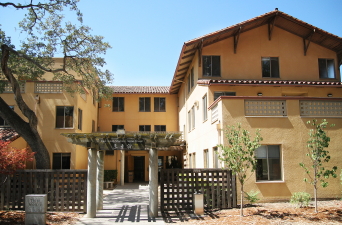
The School of Education recently unveiled its new Undergraduate Minor in Education, and in doing so, acknowledged undergraduates’ interests in teaching as well as in educational research, policy, activism, and volunteerism. The Education House at Stanford envisions a living learning space that serves students as a hub of activity around student engagement in education. Traditional elements of the academic theme house include a year-long house seminar on rotating topics in education and education-themed events such as informal brown bags, outings to education-related community sites, and visits by guest speakers working in various capacities in formal and non-formal education contexts. Over time, the Education house can serve as a campus hub for the numerous but somewhat disparate community organizations (both on and off campus) in which students are involved. House common areas can serve as meeting space, workspace, and reading/writing/tutoring labs for students involved in organizations such as those run out of the Haas Center (Ravenswood Reads, Stanford College Prep, Jumpstart, etc) and those that are unaffiliated (College Track, Foundation for a College Education, Building Peaceful Families, etc). As growing numbers of students take part in the new Minor in Education and the existing Honors Program in Education, the Education House can also serve as a campus hub for those programs. Events may include information nights covering careers and graduate school options in Education with current students, alumni, and faculty. Drop-in advising would be available with the Resident Fellows, both professors (Academic Council) of education having research and teaching interests in higher education, multicultural issues, gender, international and comparative education, and research methods.
Subscribe to our monthly newsletter.